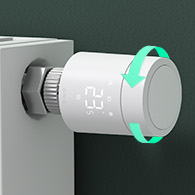About 9 months ago was talking to a guy who was to fully renovate a small terraced house in a desirable part of London. A full strip out with insulation under the floor, insulation on the outside walls, in roof incline, shower room in the roofspace, triple glazing, insulated doors, etc. A small highly insulated extension out the back for the kitchen, open plan with an an open feature staircase. two bedrooms.
I told him he will not need a full heating system, so no rads on walls. He was having only a shower, no bath. I told him to consider getting rid of gas, saving gas meter space and the standing charge for gas. I directed him to high kW in-line instant electric water heaters for the shower and bathroom basin tap. I also mentioned instant hot water taps, an electric kickspace heater for the kitchen and underfloor electric heating for the bathroom and/or living room, also an electric towel rail in the bathroom. I mentioned heat recovery extractor fans.
I briefly met him last week. Project finished, with him pretty well doing above what I was roundly talking about. He was thinking that way anyhow. He did the sums with space saving paramount in a small house - no big combi on the wall or cylinders. He got an expensive boiling water Quooker tap, for the designer effect as well, however a number of makers make these sorts of taps now and much cheaper. He saved on spending a fortune on a designer electric kettle as well and saves worktop space to boot. He uses a raindance Hansgroshe shower mixer which is rated at 9 litres/min. The shower water is aerated.
He said his water bills are minimal as there is little water wasted as hot water is heater at point of use. Making tea & coffee is instant using the Quooker. He has not used the underfloor heating in the living room as the house is so well insulated, only the electric kitchen kickspace. I will have a look at his place in the next few months or so. Interesting for sure.
In highly insulated/superinsulated homes this must be the way to go now, omitting gas completely.
I told him he will not need a full heating system, so no rads on walls. He was having only a shower, no bath. I told him to consider getting rid of gas, saving gas meter space and the standing charge for gas. I directed him to high kW in-line instant electric water heaters for the shower and bathroom basin tap. I also mentioned instant hot water taps, an electric kickspace heater for the kitchen and underfloor electric heating for the bathroom and/or living room, also an electric towel rail in the bathroom. I mentioned heat recovery extractor fans.
I briefly met him last week. Project finished, with him pretty well doing above what I was roundly talking about. He was thinking that way anyhow. He did the sums with space saving paramount in a small house - no big combi on the wall or cylinders. He got an expensive boiling water Quooker tap, for the designer effect as well, however a number of makers make these sorts of taps now and much cheaper. He saved on spending a fortune on a designer electric kettle as well and saves worktop space to boot. He uses a raindance Hansgroshe shower mixer which is rated at 9 litres/min. The shower water is aerated.
He said his water bills are minimal as there is little water wasted as hot water is heater at point of use. Making tea & coffee is instant using the Quooker. He has not used the underfloor heating in the living room as the house is so well insulated, only the electric kitchen kickspace. I will have a look at his place in the next few months or so. Interesting for sure.
In highly insulated/superinsulated homes this must be the way to go now, omitting gas completely.
Last edited:



